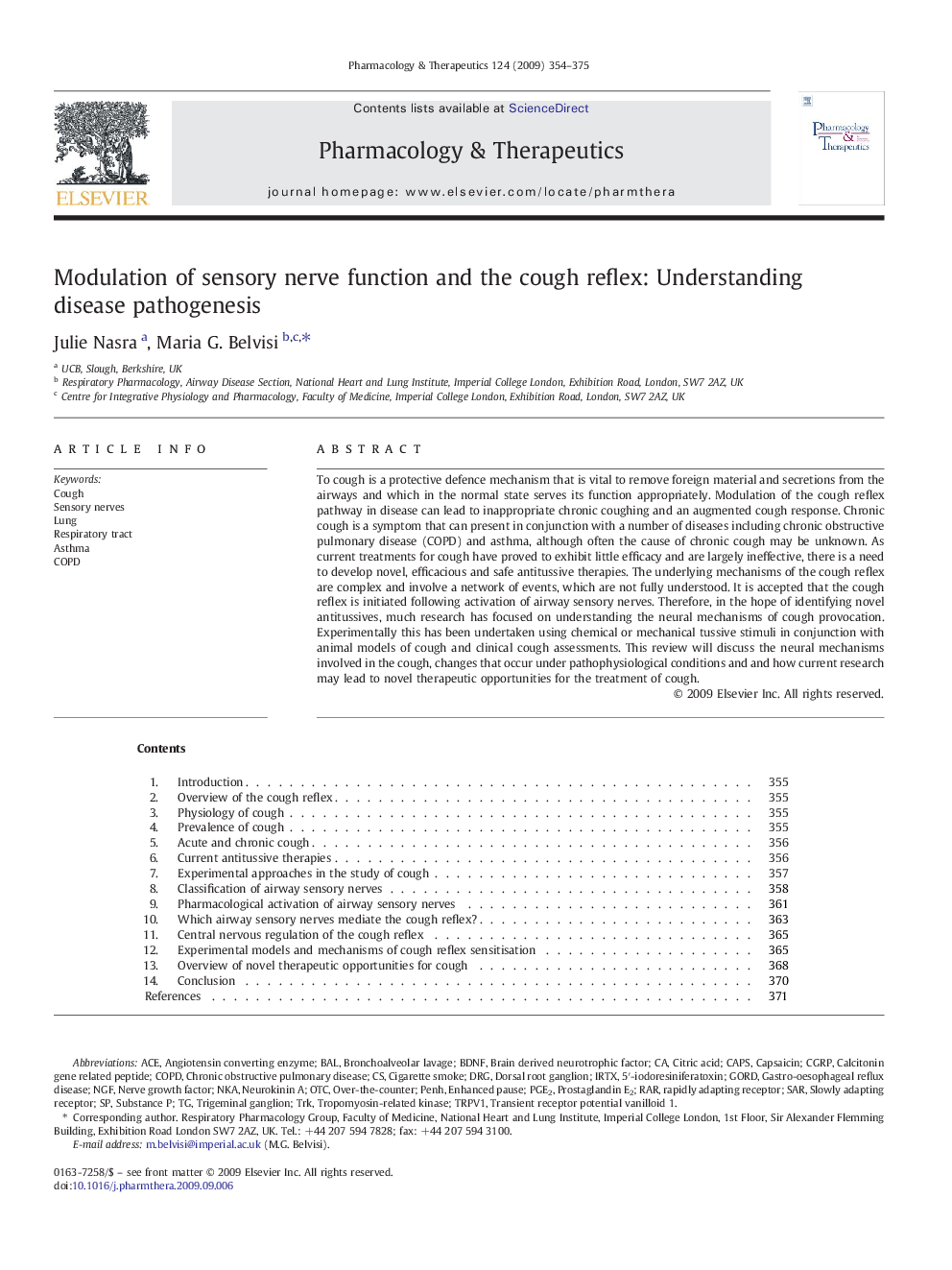| Article ID | Journal | Published Year | Pages | File Type |
|---|---|---|---|---|
| 2563560 | Pharmacology & Therapeutics | 2009 | 22 Pages |
To cough is a protective defence mechanism that is vital to remove foreign material and secretions from the airways and which in the normal state serves its function appropriately. Modulation of the cough reflex pathway in disease can lead to inappropriate chronic coughing and an augmented cough response. Chronic cough is a symptom that can present in conjunction with a number of diseases including chronic obstructive pulmonary disease (COPD) and asthma, although often the cause of chronic cough may be unknown. As current treatments for cough have proved to exhibit little efficacy and are largely ineffective, there is a need to develop novel, efficacious and safe antitussive therapies. The underlying mechanisms of the cough reflex are complex and involve a network of events, which are not fully understood. It is accepted that the cough reflex is initiated following activation of airway sensory nerves. Therefore, in the hope of identifying novel antitussives, much research has focused on understanding the neural mechanisms of cough provocation. Experimentally this has been undertaken using chemical or mechanical tussive stimuli in conjunction with animal models of cough and clinical cough assessments. This review will discuss the neural mechanisms involved in the cough, changes that occur under pathophysiological conditions and and how current research may lead to novel therapeutic opportunities for the treatment of cough.
